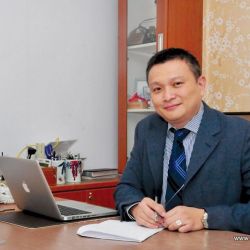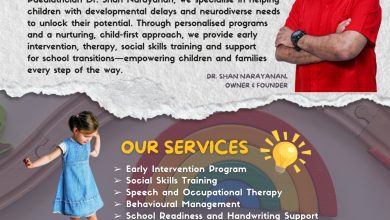

By SeeFoon Chan-Koppen


“After more than 10-plus years as an oncologist in government hospitals and another 10 more in private practice, I have come to view after care in cancer treatment as a very important part of the total healing process”, said this affable doctor who honed his oncology skills early on in his medical career working for three and a half years at the largest oncology centre in Hong Kong treating an average of 4000 new cancer cases per year. “I care very much what happens to my patients even after the ‘all clear’ signals have been given and I believe in spending time with them on post cancer counselling” he added.
Dr Lum has been busy reviewing the literature on cancer survivors and in the USA alone, there are over 14 and a half million of them. Although there are no statistics available about cancer survivors for Malaysia, he is optimistic that the figures are equally favourable in the battle against cancer.
“Post cancer care is very important for cancer patients as they begin the road to regaining their full health. Patients are wondering what comes next and in some way, they are dealing with a ‘new’ person after cancer. Their physical being has suffered a massive attack and the treatments of chemotherapy and radiation leave them weaker than ever.” he stressed.
Four Elements in Post Cancer Care
Dr Lum looks at four elements of the post cancer dynamics and spends time over a 2-3 month period in counselling each patient with genuine empathy. He goes where many doctors fear to tread which is in dealing with the emotional aspects of patients who have just finished cancer treatment. Additionally he also spends time advising on weight management, exercise and dietary counselling.
Emotional
“Cancer survivors are prone to depression, anxiety, anger, and mixed emotions. They have a tendency to feel isolated and lonely. Some younger patients especially breast cancer patients may have to deal with body image and all the associated hidden fears around sexual issues. This is where I come in. I listen to them with an open mind and I try not to lecture. I encourage them to spend time with other cancer survivors and share experiences and join a survivor group if they can and because I have already been with them on the treatment part of the journey, they are usually more open to talk about their feelings and more willing to accept my counselling.”
Physical
On the physical side, Dr Lum encourages sensible weight management eschewing the usual standard charts, emphasising more on BMI or Body Mass Index and waist circumference. With obesity being linked to breast cancer in women and colon cancer in men, he advocates for men to keep their waist circumference under 94cm and women under 80cm.
Diet and Food Preparation
As for dietary advice, he takes into consideration patients’ preferences and works with individuals tastes and beliefs to draw up eating plans that are based on a 20-30% fat/ 40-60% good carbs and 10-30% proteins. He admonishes all cancer patients and survivors to stay away from sugar and refined grains and starches.
For proteins, he advises patients to eat less meat and if they do, to stick with lean and no skin, preferring more fish and eggs. Snacks and chips are on his no no list as most of them are laden with trans fats. He recommends using grapeseed oil for cooking as well as light olive oil and to cook with less oil, using a non-stick (Teflon is also on his no no list) pan where possible.
Because cancer survivors’ immune systems are compromised from the cancer and treatments, he places great emphasis on good food handling habits as in separating chopping boards for fruits/vegetables and meat. He also recommends eating hot foods hot and cold foods must stay cold. Expiry dates on food are also very important.
Exercise
“Combine these elements on emotional health, diet, weight management with regular exercise and cancer survivors should stand a good chance to stay in remission for a long time, perhaps till they die of old age. Exercise need not be vigorous. A brisk walk four times a week for 20-30 minutes is a good start for most people. Add to that, the habit of taking the stairs instead of lifts or even doing housework should go a long way to boost energy, fight fatigue and depression – that dark hole many cancer survivors fall into.”
Dr Lum Wan Wei, Consultant Clinical Oncologist and Radiotherapist.
Suite 2-19. KPJ Ipoh Specialist Hospital Tel: 05 255 0566 or 05 240 8777 (ext. 405/262/226/400/408).


